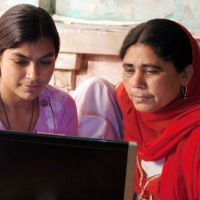
Health authorities and non-governmental organisations often use mass media interventions (e.g. leaflets, radio and TV advertisements, posters and social media) to encourage healthier behaviours related to physical activity, dietary patterns, tobacco use or alcohol consumption, among others. In this review, the authors consider the effects of mass media interventions targeted towards ethnic minorities. A targeted intervention is designed for and considers the characteristics of a specific group, ideally providing ethnic minority groups equal opportunities and resources to access information, life skills, and opportunities to make healthier choices. However, we do not know whether targeted mass media strategies are more effective in reaching and influencing ethnic minorities than mass media strategies developed for the general population.
The review authors found six studies, all from the USA, four of which targeted African Americans and two which targeted Latino or Chinese immigrants. Of the studies, four were experimental (1693 volunteers) and two reported the results of large, targeted campaigns run in whole communities and cities. The available evidence is unable to conclude whether targeted mass media interventions for ethnic minority groups are more, less or equally effective in changing health behaviours than general mass media interventions.
Based on findings from three studies, when compared to no intervention, a targeted mass media intervention may increase the number of calls to smoking quit line, but the effect on health behaviours is unclear. These studies could not distinguish the impact of different components, for instance the effect of hearing a message regarding behavioural change, the cultural adaptation to the ethnic minority group, or increase reach to the target group through more appropriate mass media channels.
Read the full review here
